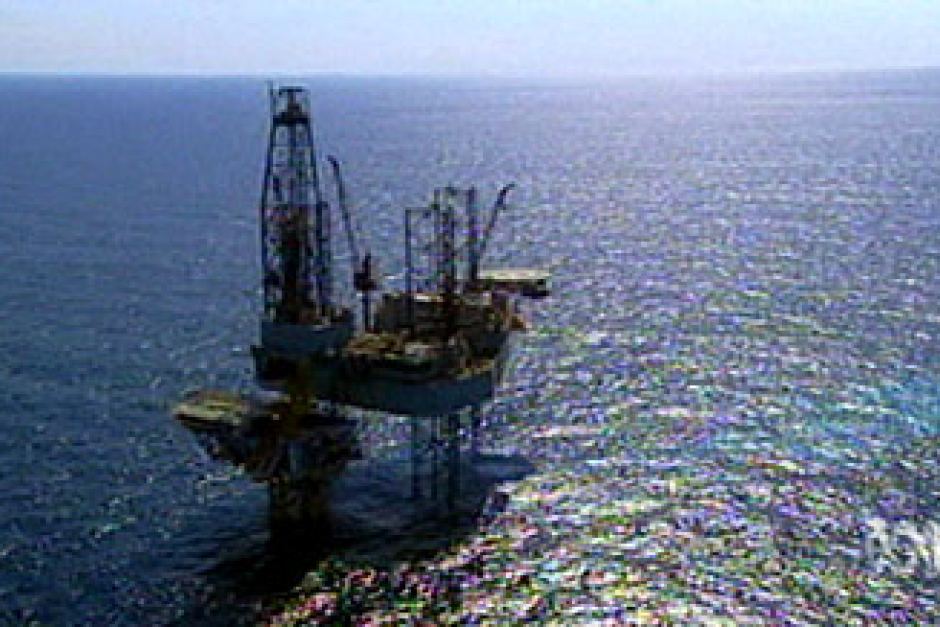Category: World Politics / Oil and Gas / Courts and Trials / Foreign Affairs / Government and Politics
East Timor tears up oil and gas treaty with Australia
Monday, 9 Jan 2017 11:45:50 | Henry Belot And Emily Stewart

The disputed territory contains large oil and gas deposits worth an estimated $40 billion. (ABC News)
East Timor will tear up an oil and gas treaty with Australia that has been at the centre of espionage allegations, international arbitration and a bitter diplomatic dispute.
The two countries have been locked in an ongoing disagreement over maritime borders in the Permanent Court of Arbitration in The Hague, related to access to oil and gas deposits worth an estimated $40 billion.
Australia lost its bid to stop East Timor from forcing compulsory conciliation in The Hague in September last year, months after Prime Minister Malcolm Turnbull rejected calls for fresh negotiations.
A history of treaties in the Timor Sea
- In 1989 Australia and Indonesia signed the Timor Gap Treaty when East Timor was still under Indonesian occupation.
- East Timor was left with no permanent maritime border and Indonesia and Australia got to share the wealth in what was known as the Timor Gap.
- In 2002 East Timor gained independence and the Timor Sea Treaty was signed, but no permanent maritime border was negotiated.
- East Timor has long argued the border should sit halfway between it and Australia, placing most of the Greater Sunrise oil and gas field in their territory.
- In 2004 East Timor started negotiating with Australia again about the border.
- In 2006 the CMATS treaty was signed, but no permanent border was set, and instead it ruled that revenue from the Greater Sunrise oil and gas field would be split evenly between the two countries.
A joint statement from both countries said the Treaty on Certain Maritime Arrangements in the Timor Sea (CMATS) would be no longer apply after a three-month transition period.
"The Government of Australia has taken note of this wish and recognises that Timor-Leste has the right to initiate the termination of the treaty," the statement said.
The statement said Australia and East Timor had agreed to "an integrated package of measures to facilitate the conciliation process", which included abandoning the deal.
ANU professor of international law Don Rothwell said the carefully worded joint statement indicated conciliation talks between the countries were progressing.
"The statement gives some indication that the conciliation process is constructively moving forward and there is a hint that perhaps Australia has conceded that they are prepared, for the first time, to settle on a permanent maritime border with East Timor," he said.
"If that is the case, then that is a significant change to Australia's position however we still don't know what the permanent boundary will be."
The CMATS treaty outlined a 50-year freeze on negotiations for a permanent maritime border, but East Timor claim this treaty is invalid given Australian intelligence operations in 2004.
An earlier 2002 maritime treaty will apply after the three-month transition period, with East Timor and Australian representatives set to meet before the Conciliation Commission later this year.
Australian business welcomes move
A spokeswoman for Australian company Woodside Petroleum, which has an interest in the Greater Sunrise gas fields near East Timor, welcomed the development in the absence of a permanent resolution.
"Woodside supports this morning's joint statement by the Governments of Australia and Timor-Leste and the Conciliation Commission committing to negotiate permanent maritime boundaries between the two countries," she said.
"Woodside understands the Timor Sea Treaty remains in place and we look forward to an agreement that allows for the earliest commercialisation of the Greater Sunrise fields, which promise great benefits for all parties."
The Greater Sunrise fields were discovered in 1974 are located 150 kilometres south-east of East Timor and 450 kilometres north-west of Darwin.
Woodside's development of the gas fields has been delayed until the East Timor and Australian governments agree on a legal and regulatory framework for the resources.
Tense relations
Diplomatic relations have been tense since East Timor officials accused Australia of spying on cabinet ministers in 2004 amid negotiations on the treaty to divide the oil and gas fields.
In 2013, Canberra-based lawyer Bernard Collaery, who was representing East Timor in the spying case at The Hague, claimed his office had been raided by the Australian Security and Intelligence Organisation.
East Timor's former president Xanana Gusmao has also accused Australia of taking advantage of the country in 2002, when the country was struggling to establish itself after attacks by pro Indonesian militias.
East Timor maintains Australia has unfairly claimed the oil and gas reserves within its own territory.
- About Us
- |
- Terms of Use
- |
-
 RSS
RSS - |
- Privacy Policy
- |
- Contact Us
- |
- Shanghai Call Center: 962288
- |
- Tip-off hotline: 52920043
- 沪ICP证:沪ICP备05050403号-1
- |
- 互联网新闻信息服务许可证:31120180004
- |
- 网络视听许可证:0909346
- |
- 广播电视节目制作许可证:沪字第354号
- |
- 增值电信业务经营许可证:沪B2-20120012
Copyright © 1999- Shanghai Daily. All rights reserved.Preferably viewed with Internet Explorer 8 or newer browsers.




 Send to Kindle
Send to Kindle
